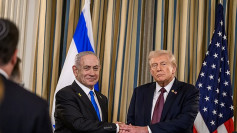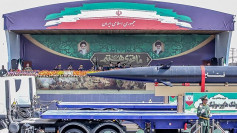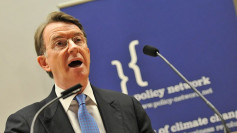Buckingham Palace is facing scrutiny after failing to publish official royal gift lists for the past four years, with the delay attributed to the transition following the death of Queen Elizabeth II in October 2022. The lack of transparency has sparked criticism from anti-monarchy campaigners, who are demanding more stringent disclosure standards, akin to those imposed on members of Parliament. The issue has reignited long-standing debates about the Royal Family's gift acceptance practices and the potential for conflicts of interest.
A Buckingham Palace spokesperson, addressing the delay, stated, "We will publish the details when the records are up to date following the transition of reign." However, this explanation has done little to quell the concerns of critics, who argue that the prolonged delay raises questions about the transparency of the monarchy. The Palace's most recent official gift list was published in April 2020, leaving a substantial gap in public records. Critics argue that such omissions fuel suspicions regarding the Royal Family's practices.
Anti-monarchy campaigners, particularly from groups like Republic, have intensified their calls for accountability. Graham Smith, the chief executive of Republic, emphasized the need for full disclosure. "If we demand high standards from politicians, we must demand those same standards from the royals. The public has the right to know about any potential conflicts of interest or attempts to influence the monarchy," Smith said. His comments highlight growing concerns about the blurred lines between official gifts and personal benefits received by the Royal Family.
Historically, the Royal Family has faced criticism over gift acceptance, with some past scandals resurfacing in light of the current controversy. One such example is the "cash-for-honors" scandal, which involved accusations that donations to royal charities were being used to secure honors for wealthy benefactors. In a separate incident, the Duchess of Sussex, Meghan Markle, came under scrutiny for wearing £500,000 diamond earrings, reportedly a gift from Saudi Crown Prince Mohammed bin Salman, during an official event in Fiji. The incident raised questions about whether royals are adequately transparent about the gifts they receive.
The Palace's guidelines for royal gift acceptance, first established in 1995 and later updated, dictate that gifts should not be accepted if they could be perceived as putting the royals under obligation to the donor. Personal gifts are only allowed under specific conditions, such as being worth less than £150 or given by someone with whom the royal has a personal relationship. Otherwise, gifts are classified as "official" and are not considered the personal property of the recipient. Despite these guidelines, critics argue that the lack of transparency surrounding royal gifts raises doubts about how strictly these rules are followed.
Comparisons have been drawn between current practices and historical precedents. For example, when Princess Elizabeth (the future Queen) married Prince Philip in 1947, over 2,500 wedding gifts were publicly displayed. In contrast, no list of gifts was released following the 2011 wedding of Prince William and Kate Middleton, now the Prince and Princess of Wales. Similarly, only a few official gifts received by Queen Elizabeth during her Platinum Jubilee in 2022 were disclosed, and uncertainty remains about gifts given for King Charles's Coronation in 2023.
The ongoing investigations into royal charitable foundations further complicate matters. Last month, Michael Wynne-Parker, a society figure linked to the "cash-for-honors" scandal, was disqualified from charity roles for 12 years after an investigation revealed that nearly £200,000 meant for the King's Foundation was transferred to his private company account. This scandal, along with revelations that former Qatari Prime Minister Sheikh Hamad Bin Jassim Bin Jaber Al Thani donated £2.5 million to the Prince of Wales's Charitable Fund in cash-filled carrier bags, has intensified calls for greater transparency in royal dealings.
The "cash-for-honors" scandal and other controversies involving substantial cash donations to royal charities underscore the need for clear, public records of royal gifts and donations. Campaigners argue that such transparency would help prevent potential conflicts of interest and ensure that royals are not seen as being influenced by wealthy benefactors or foreign governments.
While Buckingham Palace has stated that the delay in publishing gift lists is due to the transition of reign, the ongoing lack of disclosure continues to attract criticism. Anti-monarchy activists argue that the monarchy's opaque practices are inconsistent with the standards of transparency demanded of other public figures in the UK, such as politicians. As the Royal Family navigates these controversies, the pressure for full transparency is likely to grow, particularly as public scrutiny of the institution continues to intensify.






